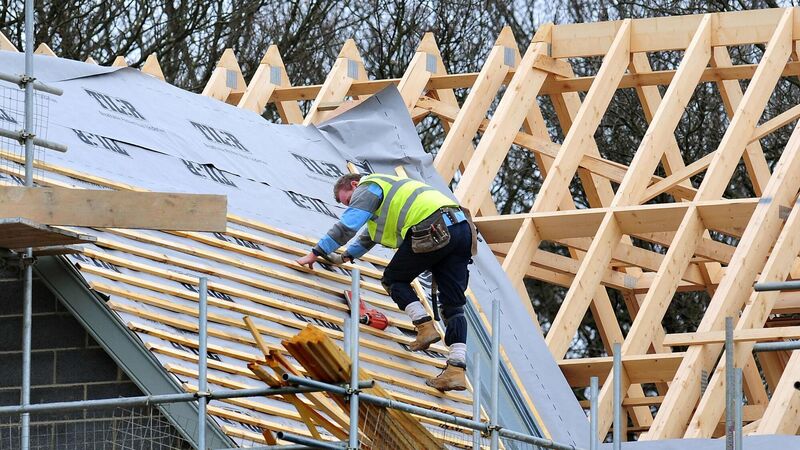Construction industry shrinks along with housing as costs flare

All three parts of Ireland's construction sector, including housing, contracted in June for the first time since the onset of the inflation crisis, with some previously agreed projects having been postponed, according to a leading survey of the industry.
The findings of the survey of purchasing managers who work in the building industry, as tracked by the BNP Paribas Real Estate index, starkly show the fallout from "a steep" increase in building materials and labour costs, with employment levels "stagnating" and the first fall in output for 21 months. New orders are also falling at a quickening pace.














